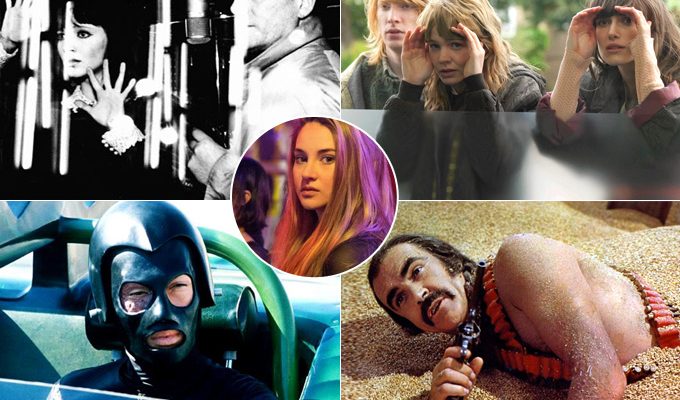
“Time of The Wolf” (2003)
The apocalypse has come and gone by the opening of Michael Haneke‘s “Time Of The Wolf,” the Austrian helmer’s sole entry into the science fiction genre, but that doesn’t mean that the worst is over. Far from it. Society is still crumbling around the central family, led by matriarch Anne (Isabelle Huppert), who are struggling to survive in a world in the aftermath of an catastrophe (drinking water is scarce, and livestock are set aflame). And in the opening minutes, they’re robbed, and have to watch as the patriarch (Daniel Duval) is murdered, forcing them to flee, until they eventually come under the questionable protection of tinpot despot Olivier Gourmet, who has control of the uncontaminated water. It’s about as much fun as you’d expect from a post-apocalyptic Michael Haneke film—i.e. no fucking fun whatsoever—but it’s impeccably directed and performed, by Huppert especially. And what elevates it above, say, “The Road,” are the hints that the director gives—without ever over-egging it—that he’s not really talking about some futuristic dystopia, but about the places in the world—Kosovo, Somalia, wherever—where people eke out desperate existences in circumstances all too similar to those of Anne and her family.

“A Boy And His Dog” (1975)
Vic and Blood are the characters of the title, a simple orphaned teenage boy and his lovable canine friend. And that’s just about where the normal elements of this Harlan Ellison adaptation end, as Vic is milling about in a post-apocalyptic wasteland, and Blood is a telepathic dog helping the boy get laid. This may be the end of the world, a nuclear wasteland that’s mutated some and killed most, but Vic just wants to spend time with his buddy. The two of them lay about and amuse themselves as the world around them sits in tatters, but this dissonance discontinues as the duo comes across a small town not only preserved from the destruction, but rendered in a 1950’s style suburbia. With nothing left, we only have the ability to retreat. Of course, this society is paranoid and self-destructive, and Vic ultimately ends up getting involved in their dangerously reductive horseplay, tied to a girl and a plot to overthrow the town’s leadership. Most dystopias feature this idea, that some will yearn for structure and clash with others who actively reject it. Ultimately, the latter strategy proves appealing for Vic, who won’t bend his allegiance to Blood, his very best friend at the end of the world. —With additional contributions from Jessica Kiang
Now we’re at the end… of this feature, not the world, so we want to hear from you. Any end of everything movies we missed that you like? Do any of the ones listed here deserve more love? Let us know in the comments section. Also, additional must-reading for the syllabus: 20 Oddball Sci-Fi Films Of The 1970s.

